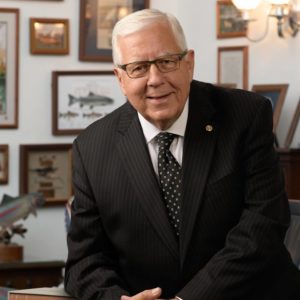by Gabriel Levitt, President, PharmacyChecker.com and Prescription Justice | Feb 28, 2019 | Drug Importation
Good news for New Yorkers who want freedom of choice to fill their prescriptions at pharmacies located where they are more affordable: in other countries. There is now an explicit exception to the electronic prescription (e-prescribing) law in New York that permits paper prescriptions to be filled in other countries. I’m sorry we didn’t catch this earlier, but here it is now. As of January 2017, according to the NY State Department of Health, one exception to e-prescribing, which allows a provider to write a paper prescription, is when the medicine is:
“…dispensed by a pharmacy located outside the state, outside the country, or on federal property, including and not limited to the following examples; Veterans Administration, West Point, Fort Drum, and Indian Reservations;”
When e-prescribing became mandatory in NY, people had a hard
time obtaining paper prescriptions. This was not just an inconvenience. It was
a threat to their access to affordable medicine. In our country, it’s sometimes
imperative to shop around and find the pharmacy that charges the lowest price
in our neighborhood – or in another country. This development should be very
helpful to people looking to shop around.
(more…)Tagged with: e-prescribing, New York, states
by Gabriel Levitt, President, PharmacyChecker.com and Prescription Justice | Feb 22, 2019 | Big Pharma
This week, Wendell Potter, healthcare
advocate and publisher of non-profit media outlet Tarbell, called out a slew of
drug industry experts for undermining efforts to lower drug prices. This
includes the likes of Sally Pipes of the Pacific Research Institute, the
Alliance for Safe Online Pharmacies, and the Partnership for Safe Medicines.
All use the specter of counterfeit drugs and the opioid crisis to scare the
American public away from safe personal importation via online pharmacies.
Recipients of Drug Company Donations
Who is called out?
- Sally
Pipes, from the Pacific Research
Institute, because in an op-ed opposing drug importation, Ms. Pipes
obtusely connects Americans ordering drugs from Canada with the many tragic deaths
in low-income countries from
counterfeit drugs.
- The Alliance
for Safe Online Pharmacies (ASOP) for peddling false information about
World Health Organization studies and counterfeit drugs.
- The Partnership
for Safe Medicines (PSM) for using the opioid crisis as a tool to oppose
importation of regular, less expensive prescription medicine.
(more…)Tagged with: Alliance for Safe Online Pharmacies, Partnership for Safe Medicines, Sally Pipes
by Gabriel Levitt, President, PharmacyChecker.com and Prescription Justice | Feb 15, 2019 | Drug Importation
In my blog post about the Senate
Finance Committee hearing on drug prices, I noted my surprise at
Senator Mike Enzi’s (R-WY) comment that he knew about a foundation that helps
people import lower-cost insulin from Canada. Sen. Enzi stated that a person
referred to as his diabetes advisor had
“found a way to work through a foundation to import insulin for a number of
people at lower-cost. And I think he worked for a foundation so that it would
be legal.” I had endeavored to look into it, but fortunately Jay Hancock from
Kaiser Health News beat me to it and found, sadly, no
such insulin import program exists. I think we can all agree that it
should!
In researching the story, Jay asked me if I knew of such a
program.
Nope.
(more…)Tagged with: Insulin, politics, Senator Mike Enzi
by Gabriel Levitt, President, PharmacyChecker.com and Prescription Justice | Feb 6, 2019 | Internet Censorship
According to a new study published by the American Enterprise Institute, the search engine Bing, which is owned by Microsoft, has added pop-up warnings to search results that increase the chances that web searchers will click to rogue online pharmacies. As the reports shows, Bing’s action appears to purposefully thwart safe personal importation of more affordable medicines. It is one of the clearest examples of censorship resulting from “voluntary agreements” among Internet companies, “encouraged” by regulators, that will threaten the health of patients buying medicine online under the guise of protecting them. Bing has placed warnings on its organic search results of Canadian-based and other international online pharmacies, yet the search engine fails to do so for many rogue websites, ones proven to sell counterfeit drugs. Here’s how that happened.
The problem is Bing’s use of the National Association of Boards of Pharmacy’s (NABP) Not Recommended List (NRL). Many of the NABP’s programs involving online sales of medicines and educating the public about online pharmacies are funded by drug companies, and therefore supportive of the industry’s profit-protecting goals against importation.
Bing’s Backwards Partnership with the NABP
(more…)Tagged with: AEI, Bing, Carmen Catizone, Google, NABP
by Gabriel Levitt, President, PharmacyChecker.com and Prescription Justice | Feb 1, 2019 | Drug Importation
Senator Chuck Grassley (R-IA), who introduced the Safe and Affordable Drugs from Canada Act of 2019, may well emerge as a major champion for Americans who import medicine because the prices are too high here in the U.S.
An astounding thing happened during the Senate Finance Committee hearing on drug prices this past Tuesday. Committee Chairman Grassley asked one of the witnesses, a mother struggling with the cost of insulin for her young adult son, if she had considered importing medicine to afford it.
Think about that.
Under most circumstances, according to the FDA, it’s illegal to import medicine for personal use. And yet at a high-profile Senate committee hearing, the venerable Sen. Grassley seemed genuinely curious why Ms. Sego didn’t get lower-cost medication online from another country.
(more…)Tagged with: Insulin, politics, Senator Chuck Grassley
by Gabriel Levitt, President, PharmacyChecker.com and Prescription Justice | Jan 25, 2019 | Drug Prices
Forcing price transparency in drug ads, proposing international reference pricing for Medicare Part B, and even drug importation can all be found in President Trump’s lunchbox of policy ideas to take on the drug companies, who are “getting away with murder.”
Huh, am I dreaming?
Is Donald Trump really a Republican? Is former Eli Lilly President Alex Azar, now HHS Secretary, really advocating such radical ideas, such as importation, against his pharma friends? Scott Gottlieb, our free-market fanatic FDA Commissioner is crusading against high drug prices, too: winner of Patients for Affordable Drugs Price Fighting Hero Award!
Pinch me. Am I awake?
I am awake and I’m not fooled by this subtle, probably well planned out public relations defense against the progressive and populist tide, which includes Republicans and Democrats. Forget importation this week: 92% of Republican and 96% of Democratic voters support ending the ban on Medicare negotiating drug prices. Finally, the country is united!
Ending the ban on Medicare price negotiations could bring down prices for drugs in all of Medicare.
But Alex Azar’s proposal to reduce drug prices in Medicare
is only for Part B, half the country, and on a small group of medications.
Forcing drug companies to list prices on TV drugs ads does not bring those
prices down. And the importation
idea is good, but super limited, and it’s still just talk!
Jamie Love from Knowledge Ecology International’s comment on Trump’s Medicare Part B proposal is caustic yet correct in describing the Trump administration’s policy and general approach:
“If one was to design a program that appeared to address the need to curb high prices for drugs, without doing much in Trump’s first term, and promising nothing after 2025, it might look like the proposal.”
On the other hand—and this is where compromise begins to seep in and you can’t help but know it’s because Trump is no normal Republican—the former President of Eli Lilly USA, Alex Azar, is advocating for forcing price reductions on drugs in Medicare Part B and importing foreign versions of lower-cost medications for single source drugs; and working in an administration giving voice to drug price transparency. Who would have thought that possible two years ago?
Not me.
Am I dreaming?
Tagged with: Donald Trump, Knowledge Ecology International, Medicare Part B, politics, Scott Gottlieb








